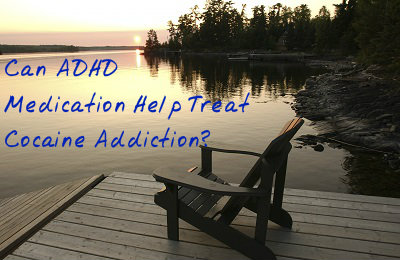ADHD Medication Disrupts Cocaine Addiction, Study Finds
Cocaine is an illegal stimulant drug known for its ability to produce physical dependence by triggering long-term alterations in the brain’s normal chemical environment. The common ADHD medication methylphenidate (Ritalin, Methylin, Concerta) bears a strong chemical resemblance to cocaine, but produces less extreme changes in brain chemistry. In a study published in August 2013 in the journal JAMA Psychiatry, a multi-institution research team examined the potential effectiveness of methylphenidate as a treatment for cocaine addiction. The members of this team concluded that the medication apparently reverses some of the critical changes in normal brain function produced by cocaine.
Cocaine Addiction Basics
Cocaine use can lead to physical dependence (i.e., addiction) because the drug sharply boosts the brain’s levels of a specific chemical responsible for producing pleasurable sensations. An individual who experiences this cocaine-related spike in pleasure levels typically heads toward physical dependence when he or she seeks to re-experience the drug’s stimulant “high” again and again over time. In mental health terms, cocaine addiction belongs to a larger illness classification called stimulant use disorder (which in turn belongs to an even larger category of conditions called substance use disorders). This classification includes all forms of addiction stemming from the use of stimulant drugs or medications. It also includes all forms of non-addicted abuse of stimulant drugs and medications. Since issues of abuse and addiction are commonly intertwined, the stimulant use disorder diagnosis replaces all separate diagnoses of stimulant abuse and stimulant addiction.
Methylphenidate Basics
Like cocaine, Ritalin and all other forms of methylphenidate boost the brain’s levels of the chemical responsible for producing pleasure. Methylphenidate has this effect because it has a chemical structure that’s extremely close to the structure of cocaine. However, while cocaine triggers sharp, relatively extreme spikes in the amount of the brain’s pleasure-producing chemical, methylphenidate triggers a smoother, significantly less extreme increase in the amount of this chemical. If it’s taken in a manner not prescribed by a doctor, methylphenidate can easily play a role in abuse/addiction problems, just like cocaine or other stimulants such as amphetamine or methamphetamine. However, when used properly under a doctor’s supervision, it typically presents no unusual abuse or addiction risks.
New Findings
In the study published in JAMA Psychiatry, researchers from Stony Brook University and the National Institute on Alcohol Abuse and Alcoholism assessed the potential usefulness of methylphenidate in easing the effects of cocaine addiction. They decided to use methylphenidate specifically because of its structural resemblance to cocaine and its relatively weak ability to boost levels of the brain’s pleasure-producing chemical. In the same way that doctors can initially treat nicotine addiction with nicotine patches, the researchers wanted to know if it’s possible to initially treat cocaine addiction with methylphenidate. During the study, nine cocaine addicts received a single dose of methylphenidate on two separate occasions. After administering the methylphenidate, the researchers examined the participants’ brains with the help of modern, MRI-based imaging technology.
After reviewing the results of the participants’ brain scans, the researchers found that methylphenidate had two basic effects. First, when compared to a second group of cocaine addicts who did not receive methylphenidate, the addicts who did receive the medication experienced a significant reduction in activity in the part of the brain responsible for boosting pleasure levels. At the same time, these treated addicts also experienced an increase in activity in two other parts of the brain responsible for controlling emotions and regulating behavior. (These two brain areas are typically unusually low-functioning in people with cocaine addictions.) In follow-up interviews, the researchers asked the participants who received methylphenidate a series of questions designed to gauge any real-world changes in their levels of addiction. After completing these interviews, the study’s authors concluded that methylphenidate did indeed weaken the strength of the participants’ addiction-related thoughts and behaviors.
Considerations
The authors of the study in JAMA Psychiatry did not look at the possible effects of long-term methylphenidate treatment on cocaine addiction. However, from their short-term experiments, they concluded that methylphenidate can potentially make brain changes that are critical to disrupting cocaine addiction and giving users of the drug a chance to assert the personal control necessary to successfully take part in long-term cocaine recovery. Despite this potential, the authors note the preliminary nature of their findings and emphasize the need for further research on methylphenidate as a treatment for cocaine addiction or other forms of stimulant addiction. No one should use methylphenidate on his or her own as a cocaine addiction treatment. Such unprescribed and unmonitored use would constitute a form of drug abuse.




